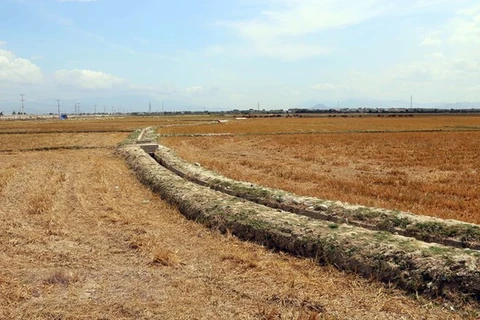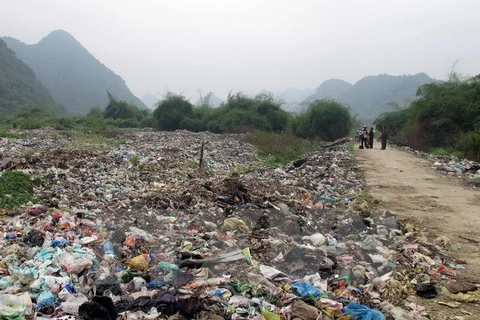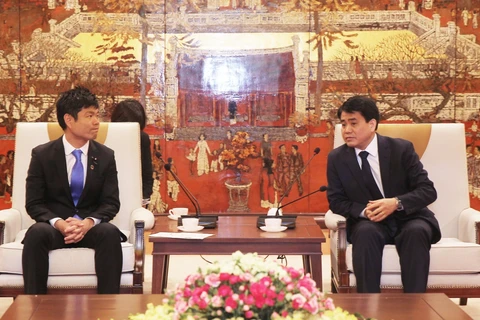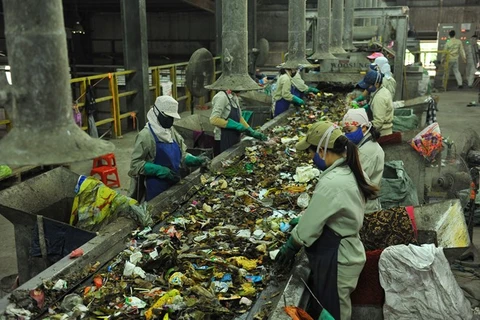Hanoi (VNA) – Experience in preventing and controlling environmental pollution was shared among Vietnamese and Japanese experts at an international workshop in Hanoi on January 11.
The event was jointly held by the Vietnamese Ministry of Natural Resources and Environment and Japanese Ministry of the Environment within the framework of the first Vietnam-Japan Environment Week taking place from January 9-11.
According to Deputy Minister of Natural Resources and Environment Vo Tuan Nhan, Vietnam is facing severe environmental pollution as a result of its strong economic growth in the past few years.
Laying stress on Vietnam’s priority to prevent and manage pollution in its environmental protection strategy, Nhan expressed his hope that the workshop will serve as a bridge to connect Vietnamese and Japanese firms to set up a cooperation plan in the field.
Japanese Vice Minister of the Environment Takaaki Katsumata said Japan had to battle similar issues to Vietnam when its economy attained rapid growth in the 1960s. The Government then carried out various measures and developed advanced models to supervise environmental quality.
With considerable experience and success, Japan will share experience in building mechanisms and branching out technologies towards sustainable environment protection, he underlined. –VNA
The event was jointly held by the Vietnamese Ministry of Natural Resources and Environment and Japanese Ministry of the Environment within the framework of the first Vietnam-Japan Environment Week taking place from January 9-11.
According to Deputy Minister of Natural Resources and Environment Vo Tuan Nhan, Vietnam is facing severe environmental pollution as a result of its strong economic growth in the past few years.
Laying stress on Vietnam’s priority to prevent and manage pollution in its environmental protection strategy, Nhan expressed his hope that the workshop will serve as a bridge to connect Vietnamese and Japanese firms to set up a cooperation plan in the field.
Japanese Vice Minister of the Environment Takaaki Katsumata said Japan had to battle similar issues to Vietnam when its economy attained rapid growth in the 1960s. The Government then carried out various measures and developed advanced models to supervise environmental quality.
With considerable experience and success, Japan will share experience in building mechanisms and branching out technologies towards sustainable environment protection, he underlined. –VNA
VNA
























